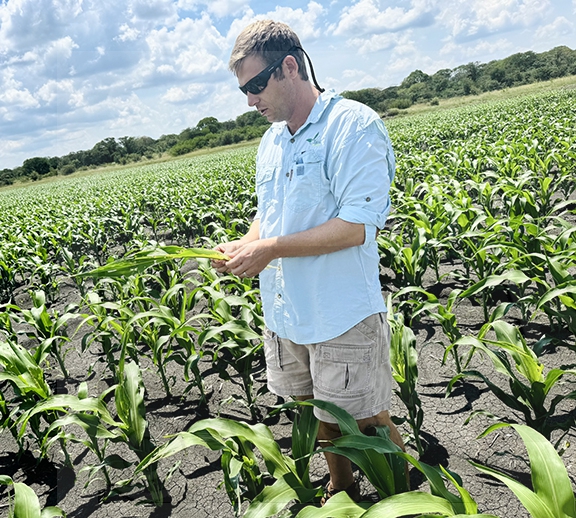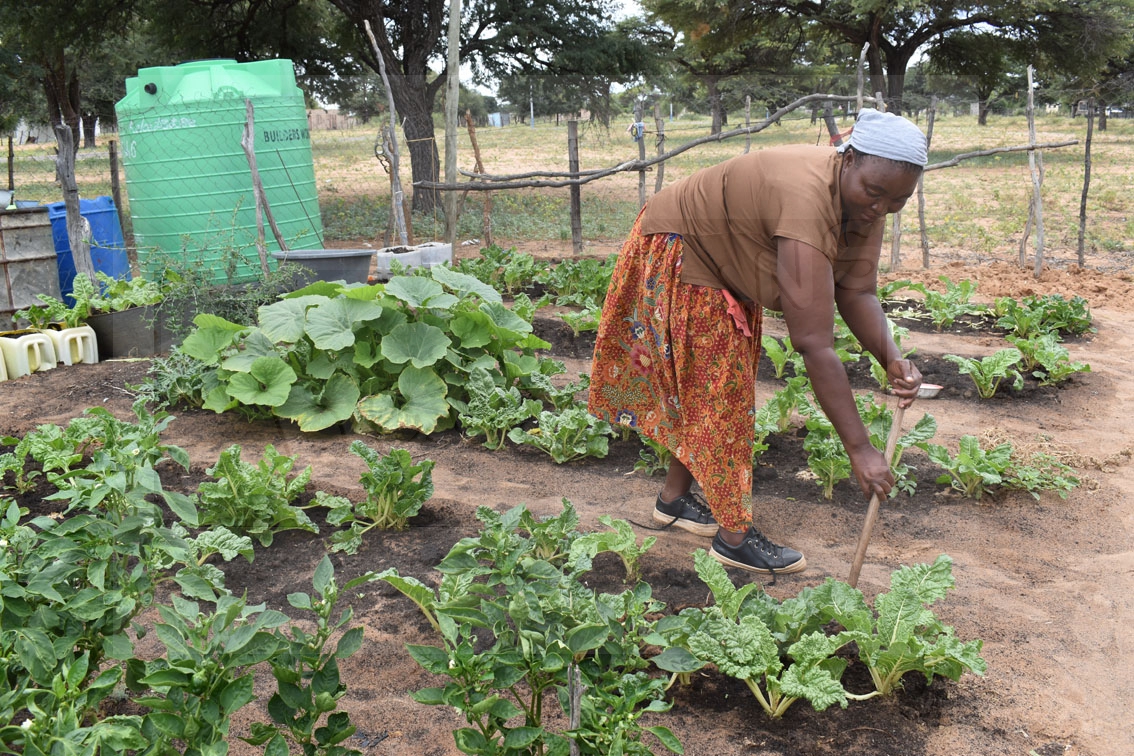Sugar beans sensitive to harsh weather
22 May 2025
A recently released report from a research that aimed to improve the quality of beans in Botswana has revealed that sugar beans do not tolerate harsh weather conditions.
Sugar beans are sensitive to high and low temperatures and does not grow well in waterlogged areas, thus revealed senior research scientist at National Agricultural Research Institute (NARDI) Mr Joseph Pharudi when sharing the research findings during a farm walk at Nlapkhwane ploughing fields recently.
He said this year sugar beans did not do well because of the torrential rains that hit the country, adding, that some farmers in Mogorosi near Serowe managed to harvest ‘something’ as they ploughed after the heavy rains subsided.
“When ploughing sugar beans, I advise you to observe the four Rs being the right germ plasma (seed), right conditions, right time and right agronomic practices,” he said, adding that controlling weeds, pests and proper tilling of the soil were the most the essential factors in producing sugar beans.
The research, which mostly focused on Tswana bean, whose seeds government provides to farmers through the Crop Production Office, was done in collaboration with the International Atomic Energy Agency (IAEA) based in Vienna, Austria and the International Centre for Tropical Agriculture (CIAT) under SADC’s Southern African Bean Research Network (SABRN).
It was through consultation with IAEA that the country established that it took longer than necessary for a particular sugar bean crop cycle to close.
“Looking at the effects of climate change, we wanted to have a crop (bean) that could produce and harvest in less than 120 days,” he said, adding that the research came up with a crop that was ready for harvest in around 85 days.
Mr Pharudi stated that in the beginning, the bean varieties under scrutiny were about 100, but some were eliminated until three varieties; M25, M33 and M46 remained. “The letter M, refers to the technology that was used to come up with the end product,” he explained.
During the research, some farmers were chosen to prototype the beans by planting them and after harvesting and tasting they would then enter the approval stage, then the variety release, after which the farmers would then name them.
Mr Pharudi encouraged farmer to plant the beans in question and ensure they saved some seeds for the following ploughing season.
One of the farmers, Mr Abel Matebu of Gandanyemba ploughing field near Nlapkhwane said he was given two varieties of sugar beans on research to plough, but this year’s torrential rains aborted his efforts.
Mr Matebu said he later bought seeds and broadcast them, however concurring that sugar beans were not an easy crop to produce due to its many challenges such as not being tolerant to heavy rains as well as high and low temperatures.
He said he periodically cultivated the soil to maintain moisture and promote aeration at the same time weeding his crops.
In his welcome remarks, Kgosi Mukani Mudongo of Nlapkhwane said selection of farmers used for the research was done randomly across all corners of the village to utilise different soil types and weather conditions.
Kgosi Mudongo applauded village elders for their keen interest in agricultural training that included workshops. He also commended the crop production officer and the NARDI office for periodically visiting the farmers to assist them with any challenge they might be facing.
For his part, NARDI senior research scientist, Mr Gagopale Bosekeng informed farmers of the introduction of bio-charbiochar, a type of charcoal created by heating organic material in a process called pyrolysis. This process, he said, transformed biomass into a carbon-rich material with potential benefits for soil health, carbon sequestration and underground moisture storage.
Mr Bosekeng said the charcoal could maintain its goodness for more than 15 years in the ground. ENDS
Source : BOPA
Author : Goweditswe Kome
Location : Nlapkwane
Event : Farm walk
Date : 22 May 2025






